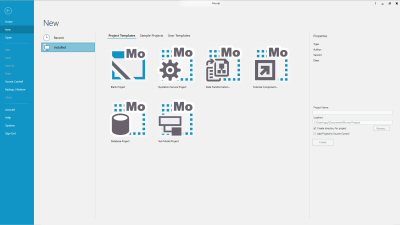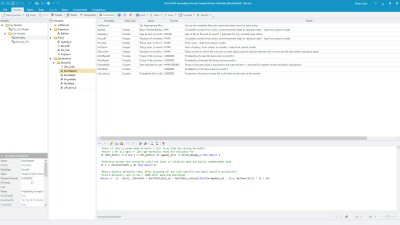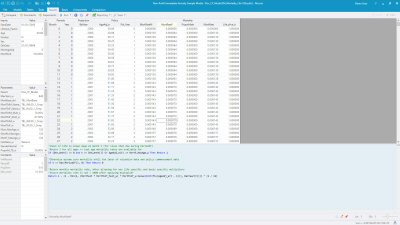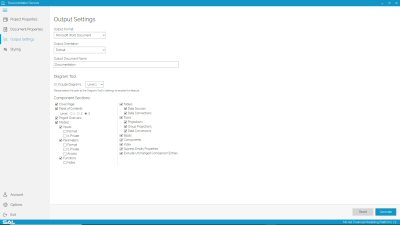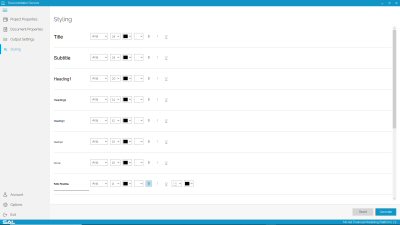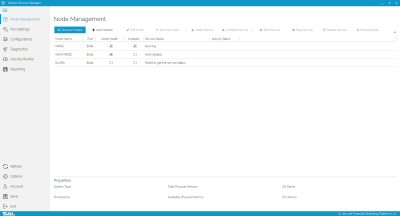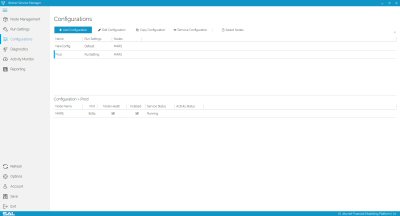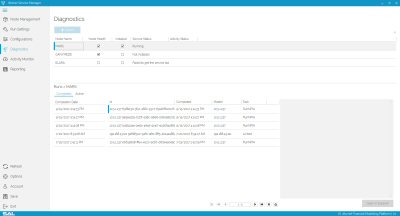Model Development Studio
The integrated Mo.net Model Development Studio provides a huge array of features & functionality to streamline the process of developing & testing flexible, scalable and performant financial models for a range of business applications. The development environment allows models to be integrated with a range of data sources / targets, external libraries, and reporting solutions. It also provides a host of debugging features to ensure models do what they are supposed to, as efficiently as possible.
Runtime Edition
Everything you need to debug, review and run financial models
✔ Model Review / Debugging ✔ Diagram Tool✔ Run Mo.net DLL / EXE
Standard Edition
Develop, debug and run financial models in a controlled environment
✔ Everything in Runtime Edition✔ Model Development / Change✔ Documentation Service✔ Personal Source Control
Professional Edition
Collaborate and optimize your team processes with better control & governance
✔ Everything in Standard Edition✔ Worker Service Manager✔ DLL / EXE Generation✔ Collaboration Service✔ Identity Service Connector
Enterprise Edition
Enterprise-grade development and governance for organisations
✔ Everything in Professional Edition✔ Service Publishing✔ HPC Connector
Features Aligned to Specific Needs
Each edition of Mo.net Model Development Studio includes features specifically designed to meet the neets of different development or operational communities.
Developer Productivity
The Model Development Studio includes a variety of features that are specifically designed to increase the productivity of model development and testing community. Development Studio also helps new developers quickly become competent and confident in the art of model design & implementation.
Collaboration & Control
To ensure that models are developed and changed in a fully controlled environment, the Model Development Studio integrates with industry standard source code control providers. This allows models to be developed in a collaborative / team-based environment with parallel branches of code being isolated from one another before being brought together ready for testing. The integration also allows models to be subject to continuous integration and testing, which can significantly increase development / testing agility.
Debugging
The Model Development Studio provides best-in-class debugging functionality out-of-the-box without need to use to third party tools. During the development phase, models can easily be reviewed within the development environment with inputs, parameters, code and output (results) all visible at once on the same screen. Furthermore, changes to inputs, parameters and code can all be made in the results window with output (results) changing in real time
For very complex models the Model Development Studio includes features such as the Results Tree and Decomposition View to help developers / testers understand the structure and flow of data through a model. Together these features make the process of testing & debugging even the most complex models very straightforward.
Reporting
Although the Mo.net platform offers integration with third party business intelligence, reporting and analysis solutions, more modest implementations can benefit from comprehensive internal reporting capability and rich integration with Microsoft Excel. This allows results to be transferred easily into Excel for downstream analysis, or Excel can be used to consume a Mo.net model directly in an operational environment.
Operational Support
While larger implementations will benefit from adopting the Modelling Service Hub, the operational requirements of smaller installations can be perfectly met by the Model Development Studio with associated Master / Worker workload distribution services. Furthermore, operational users can use a run-time only version of the development studio to perform runs without the risk of potentially changing model code.
Using the new backstage menu to create a new project from a variety of templates & samples
Adding a new function to an existing project
Exploring results interactively in Model Development Studio
Diagram Tool
The Mo.net Diagram Tool provides a graphical overview of dependencies between project objects and between variables within a model, enabling you to visualise the elements and structure of even the most complex financial models.
Documentation Service
Actuarial models have traditionally been developed by actuaries for actuaries, without regard for the processes and governance that are commonplace in the IT industry. This often leaves complex models with little or no associated documentation, either in terms of requirements, specifications or implementation references. This in turn can make models difficult to support or change, and often increases reliance on key personnel who are familiar with how models were intended to work: usually the original developers. With the regulatory agenda continuing to demand increasing evidence of good quality, appropriate and up-to-date model documentation, there is a clear need to help customers develop a body of documentation for their critical business models. The Mo.net Documentation Service can be used by model developers, testers, auditors and users to create a baseline set of technical documentation from an existing modelling project or to compare differences between two versions of a project. The document set will have a structure that is consistent with the model itself, and will be populated with useful attributes from the modelling project, allowing retrospective requirements to be added later.
Selecting documentation content using the Mo.net Documentation Service
Selecting documentation styles using the Mo.net Documentation Service
Worker Service Manager
The Worker Service Manager is used to manage distributed modelling clusters from a central console. Users can configure how parallel projections are run on one or more nodes (worker PCs); define the machines on which the projection will run; specify how many workers are created on each node and what debug information is produced.
Adding nodes using Worker Service Manager
Defining run settings using Worker Service Manager
Monitoring runs using Worker Service Manager diagnostics
More Information
For more information regarding Mo.net Model Development Studio or to request a demonstration / trial, please get in touch.


